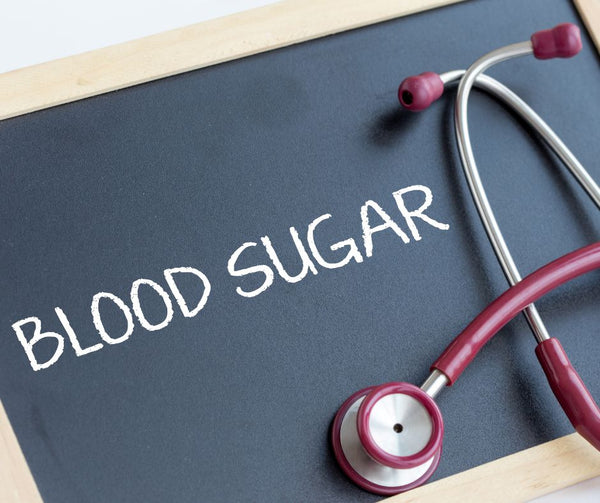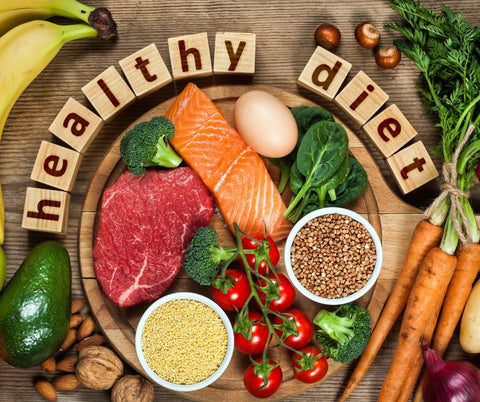Top 5 Critical Organs for Endurance Athletes: Part 1

“The Most” critical organ for endurance athletes can be debatable from our scientific community however, today we are taking a look at the liver function and its significance to endurance athletes performance. Dissecting (pun intended), the human body and prioritizing how each individual organ functions is really impossible since the body is a symphony, with every organ working in harmony with the other.
The article intent is to educate, allowing you to make lifestyle decisions which will help your organs maximize their functions.
Understanding the organ function will allow you to target your diet, to address each organ if you feel sluggish or suspect you are not maximizing the organs capabilities to its highest abilities.
In this series of articles, we will select 5 key organs, providing an overview of what the organ does for athletes performance and tips on improving the organ function.
We begin our 5 part series with the Liver.
Liver Function and Endurance Athletes
The liver is a vital organ for all athletes, but especially for endurance athletes who need to maintain high levels of performance. By understanding the liver's functions, including detoxification, glucose production and regulation, and cholesterol synthesis, athletes can make sure that they are doing everything possible to keep their liver healthy and functioning properly.
Governing body energy, the liver is a key metabolic organ. It functions as a hub to metabolically connect to various skeletal, muscle and adipose tissues. Food is digested in the gastrointestinal (GI) tract, and glucose, fatty acids, and amino acids are absorbed into the bloodstream and transported to the liver through the portal vein circulation system.

All chemicals arrive to the liver for redistribution, alteration or physical elimination. Exercise releases both good and bad chemicals(toxins) in the body. The liver is responsible for detoxifying the blood and removing waste products from the body.
Sinusoid channels are the livers filtration system, which are lined with immune cells called
In addition to detoxification the liver also helps to oxygenate the blood and keep levels of red blood cells and hemoglobin stable. An improperly functioning liver may cause the blood vessels in the lungs to dilate.

This is called, Hepatopulmonary Syndrome (HPS), a rare lung complication of liver disease. If this is severe enough, the lungs can lose their ability to oxygenate the body.
Liver disease and portal hypertension can cause problems in the pulmonary vasculature, which are the blood vessels in the lungs. Your pulmonary vasculature is vital to effective breathing (it is the site of gas exchange of carbon dioxide for oxygen) and for the normal flow of blood from the right to left side of your heart.
When the liver cannot detoxify bad chemicals, this causes the inflammation of blood vessels. These toxins can damage blood vessels in your lungs leading to dilated (enlarged) or constricted (narrowed) vessels.
This is important for athletes who need to maintain high levels of oxygenation in their muscles during exercise.
The liver also helps to regulate blood sugar levels. Glucose is stored in the liver and is accessed while exercising. The liver both stores and manufactures glucose depending upon the body's need.

The liver supplies sugar or glucose by turning glycogen into glucose in a process called glycogenolysis. During a meal, your liver will store sugar, or glucose, as glycogen for a later time when your body needs it. The need to store or release glucose is primarily signaled by the hormones, insulin and glucagon.
The process of glucose synthesis, which occurs when the body is not fed sugar, is called gluconeogenesis.
In athletes, this is important because blood sugar levels can drop during exercise, which can lead to fatigue. Maintaining stable blood sugar levels is maintained by releasing glucose into the bloodstream when needed.
Finally, the liver helps to synthesize cholesterol.
The liver plays a key role in regulating cholesterol levels in the body, firstly by making cholesterol to be delivered to cells that need it around the body, and secondly by removing cholesterol by converting it to bile salts so the body can get rid of it in bile and faeces.This is important for athletes because cholesterol is needed for the production of testosterone, which is essential for muscle growth and repair.
Although testosterone is produced in the testes, serum testosterone is reduced in up to 90% of men with cirrhosis, with levels falling as liver disease advances. Research shows an association of poor functioning livers and reduced testosterone levels.
The liver is a vital organ for all athletes, but especially for endurance athletes who need to maintain high levels of performance. By understanding the liver's functions, athletes can make sure that they are doing everything possible to keep their liver healthy and functioning properly.

5 Ways To Keep Your Liver Clean:
1. Eat a healthy diet: Eating a diet that is rich in fruits, vegetables, whole grains, and lean protein can help to detoxify the liver and keep it functioning properly.

2. Exercise regularly: Exercise helps to increase blood flow and helps the liver to more effectively remove toxins from the body.

3. Avoid alcohol & processed foods: Alcohol can damage the liver and should be avoided while processed foods can contain harmful toxins that can damage the liver.

4. Get enough sleep: Sleep helps the body to repair and detoxify itself, and the liver is no exception.
5.Maintain optimized levels of the nutrient choline.
Choline and the Liver
Humans must eat diets containing choline [1] because its metabolite phosphatidylcholine constitutes 40–50% of cellular membranes and 70–95% of phospholipids in lipoproteins, bile and surfactants [2]; it is needed to form acetylcholine, an important neurotransmitter [2]; its metabolite betaine is needed for normal kidney glomerular function, and perhaps for mitochondrial function [2]; and it provides one-carbon units, via oxidation to betaine, to the methionine cycle for methylation reactions [2].
Choline is an essential nutrient that is critical for the health of the liver.
Choline deficiency can lead to liver damage and can have a negative impact on liver function. The incidence of NFALD, non fatty acid liver disease, is becoming one of the fastest growing disease in North America.
1. Choline is necessary for the production of bile acids, which are important for the digestion and absorption of fats.
2. Choline is involved in the synthesis of cholesterol, which is important for the production of hormones and for the maintenance of cell membranes. Choline supplementation normalized hepatic cholesterol, and dramatically improved liver function.
3. Choline is necessary for the transportation of fats and for the metabolism of fats.
4. Choline is involved in the regulation of gene expression and is necessary for the proper functioning of the liver.
5. Choline deficiency can lead to liver damage and can have a negative impact on liver function. Choline's role in cell hydration is fundamental to the cell wall.
The cell wall is primarily made from phosphatidylcholine, a water-soluble nutrient that is critical for the health of cell membranes. Choline is necessary for the production of phospholipids, which are a major component of cell membranes.
The fatty acyl composition of phosphatidylcholines plays a critical role in regulating the physical properties of membranes with more unsaturated fatty acids functioning to increase fluidity. Elevating choline which is required to make phosphatidylcholine, can potentially enhance cellular hydration.

Choline rich food sources:
The richest sources are meat, fish, poultry, dairy, and eggs however many cruciferous vegetables provide a good source of this vital nutrient.
- Beef, beef liver
- Egg yolks
- Chicken breast
- Fish
- Shiitake mushrooms
- Potatoes
- Legumes (beans, peanuts)
- Milk
- Yogurt
- Cruciferous vegetables (broccoli, cauliflower, Brussels sprouts, cabbage)
- Sunflower seeds
The overall takeaway is to treat your liver with care and it will provide you a metabolically optimized and performance enhancing athletic tool.
References:
https://www.ncbi.nlm.nih.gov/pmc/articles/PMC4050641/
https://rarediseases.org/rare-diseases/hepatopulmonary-syndrome/
https://pubmed.ncbi.nlm.nih.gov/1237867/
https://www.thoracic.org/patients/patient-resources/resources/liver-disease.pdf
https://www.ncbi.nlm.nih.gov/pmc/articles/PMC3729018/

